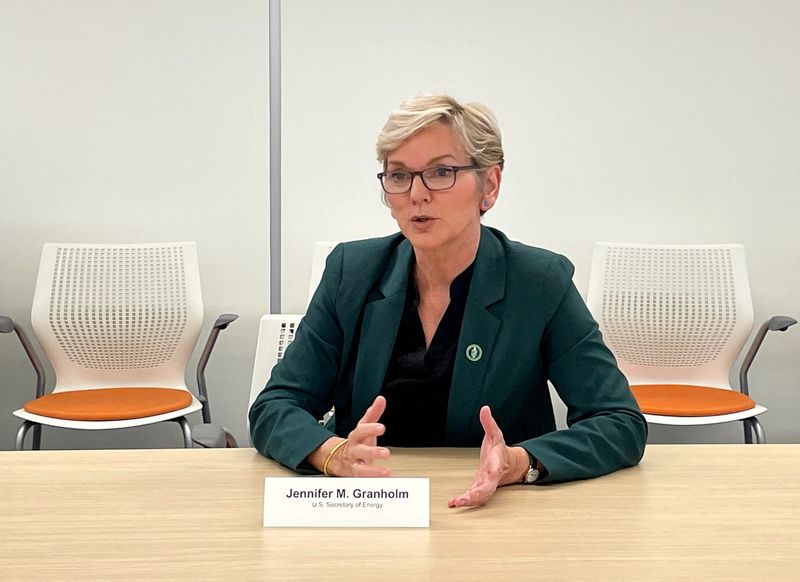By Timothy Gardner
WASHINGTON (Reuters) – The U.S. opened applications on Wednesday for up to $900 million in financing to support initial domestic deployment of nuclear technology with small modular reactors.
WHY IT’S IMPORTANT
President Joe Biden’s administration believes that nuclear power is critical in the fight against climate change because it generates virtually emission-free electricity, and that U.S. nuclear power capacity must triple to meet emissions targets.
Small modular reactors (SMRs) differ from traditional larger nuclear power plants in that they have simpler designs and can be scaled as needed. Backers say they are inherently safer and will be less expensive because they can be built in factories rather than on site. SMRs can be used to generate heat or power and for desalination.
But no American commercial SMR has been built yet. Critics say they will be more expensive to run than larger reactors because they will struggle to achieve economies of scale. Like the large reactors, they will also produce long-term radioactive waste for which there is no permanent repository in the US
HOW IS THE MONEY DISTRIBUTED?
The money comes from the bipartisan infrastructure bill of 2021, and the Energy Department expects to offer it at two levels.
Up to $800 million will go toward milestone-based awards to support first mover teams from utilities, reactor suppliers, constructors, end users and others.
Up to $100 will incentivize additional SMR deployments by addressing gaps that have hampered the domestic nuclear industry in areas such as design, licensing, supplier development and site preparation, the department said.

IMPORTANT QUOTE
“Revitalizing America’s nuclear sector is key to adding more carbon-free energy to the grid and meeting the needs of our growing economy – from AI and data centers to manufacturing and healthcare,” said US Secretary of Energy Jennifer Granholm .


